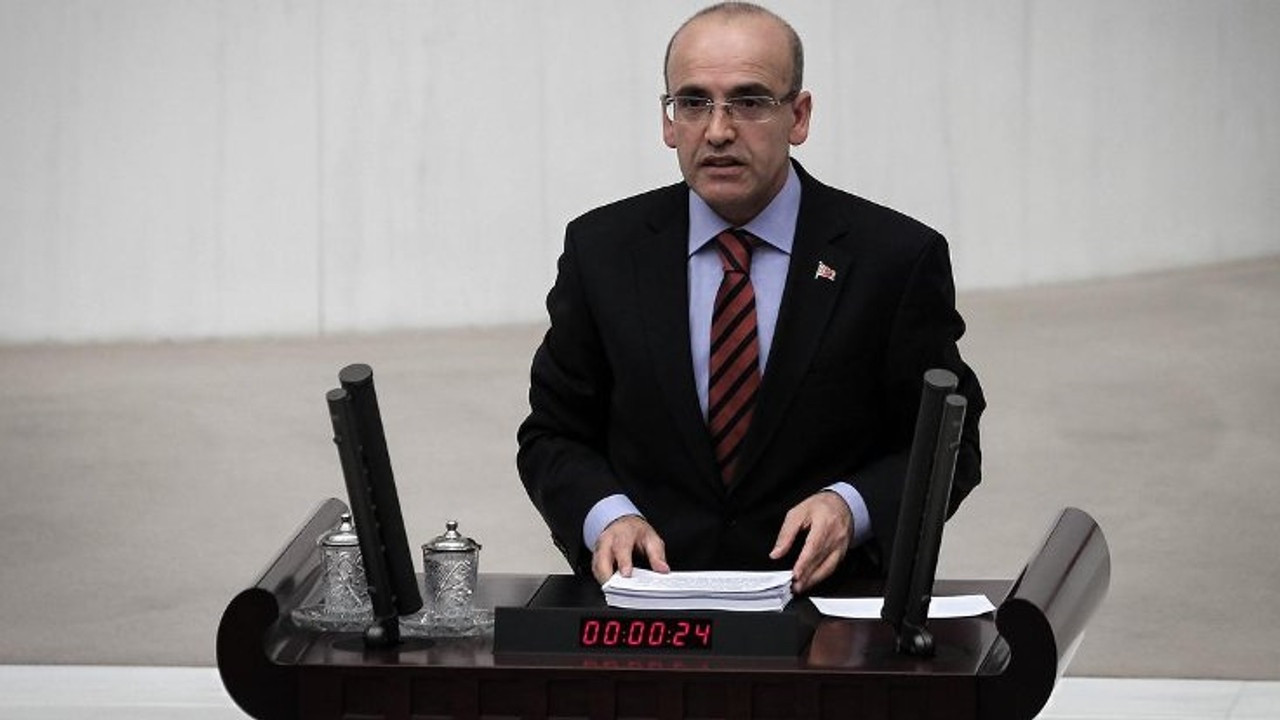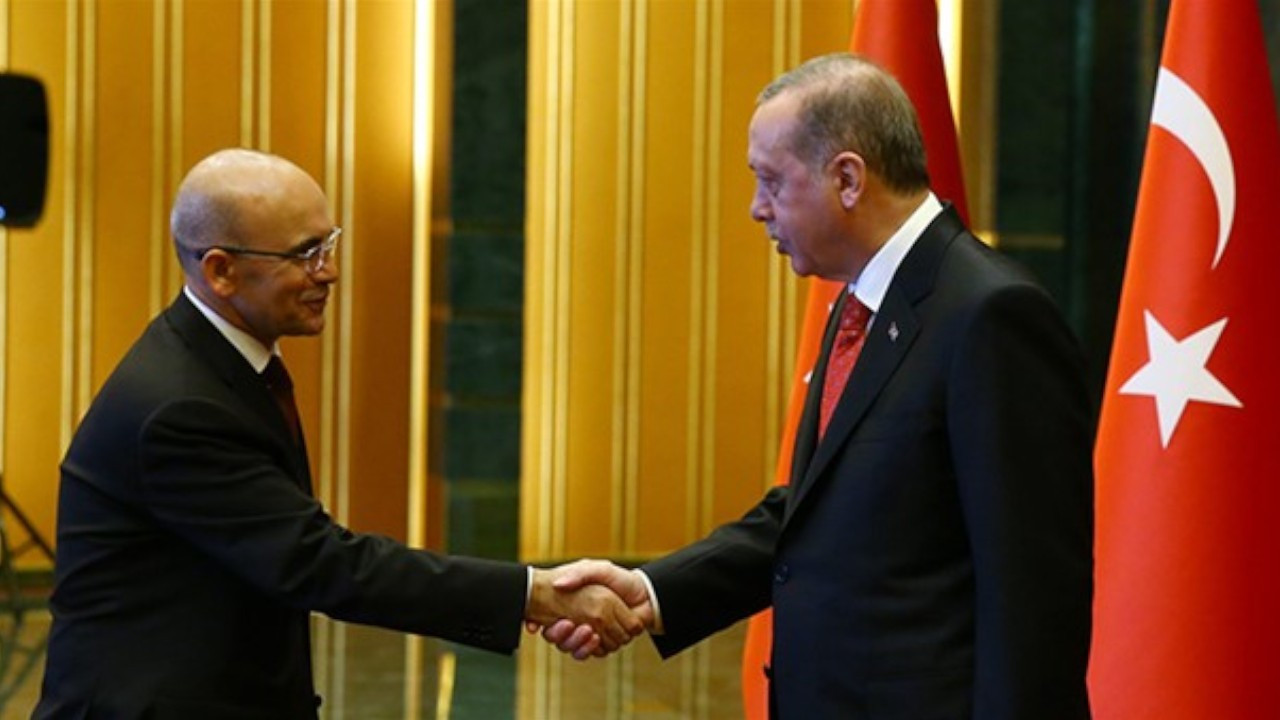Erdoğan most likely include former Finance Minister Şimşek in new cabinet, sources say
President Recep Tayyip Erdoğan will most likely include former Finance Minister Mehmet Şimşek in his new cabinet, sources told Reuters. After chairing a final meeting of his old cabinet, Erdoğan will announce new ministerial roles by June 3, officials said.
Reuters
President Recep Tayyip Erdoğan is viewed as almost certain to include former economy chief Mehmet Şimşek in his new cabinet, either as finance minister or as a vice president responsible for the economy, four senior officials said.
Şimşek was highly regarded by financial markets when he served as finance minister and deputy prime minister between 2009 and 2018. A key role for him now could signal a departure from years of unorthodox policy underpinned by low interest rates despite high inflation and heavy state control of markets.
One of the officials said the new policy would be "mixed", rather than orthodox, and change was expected to be gradual. Erdoğan's office and Şimşek were not immediately available for comment.
After chairing a final meeting of his old cabinet on May 31, Erdoğan will announce new ministerial roles by June 3, officials said. The new cabinet is almost certain to include his spokesman İbrahim Kalın and intelligence chief Hakan Fidan, they added.
The four officials who spoke to Reuters said no final decisions had been made and Erdoğan could yet change his mind.
The officials said Erdoğan was thinking of appointing Şimşek as vice president, but that Şimşek would prefer a role directly in charge of economic policy and so could take the post of Treasury and Finance Minister, now occupied by Nureddin Nebati.
Analysts were cautious about the prospect of Şimşek's appointment and whether it would bring a shift in policy.
"Over the past years, we had many changes, we had several central bank governors and we hoped something would change but nothing changed," said Guillaume Tresca, Senior Emerging Market Strategist at Generali Investments.
"Erdoğan has stuck to unorthodox strategy and I see few reasons for him to change his strategy."
Erdoğan won a landmark election runoff on May 28 despite a cost-of-living crisis and a series of currency crashes that analysts say were largely brought on by his economic programme, which has kept foreign investors away.
Speculation about a possible role for Şimşek, which investors see as bullish for Turkish assets, accelerated after he held talks with the president on May 29.
One of the sources, a senior official with knowledge of the subject, said Erdoğan and Şimşek had spoken for 2-1/2 hours.
"It was a pretty good meeting. Only a few points are being worked on. They will be completed in a short time," he said.
The same official said former minister Cevdet Yılmaz could take up the role of Treasury and Finance Minister if Şimşek were to become a vice president. Another previous Treasury minister, Lütfi Elvan, was also expected to be put in charge of an economy-related ministry, the official said.
'MIXED RATHER THAN ORTHODOX'
The lira slid to a new record low of 20.75 versus the dollar on May 31 on concerns about Turkey's depleted FX reserves and uncertainty over the direction of policy.
In his post-election victory speech, Erdoğan said: "We are designing an economy focused on investment and employment, with a finance management team that has an international reputation."
After leaving the finance ministry in 2015, Şimşek was deputy prime minister until 2018, stepping down just before the first of a series of lira crashes.
The four officials said that after the cabinet appointments, attention would shift to a change at the top of the central bank, with one ruling AKP official saying it "would not be a surprise" if current governor Şahap Kavcıoğlu were replaced.
Another senior party official said Şimşek's arrival was meant to herald a new era for the economy and help address big current account deficits, tumbling central bank reserves and inflation that was 44% in April. Last year, inflation hit a 24-year high of 85%.
"Think of the policy to be implemented as being a bit mixed, rather than orthodox or not. There will be traces of both policies," the official said, adding that initial results should be seen after six months under Şimşek.
A self-described enemy of interest rates, Erdoğan has pushed aggressive monetary stimulus that slashed the key rate to 8.5% from 19% in 2021, in order to stoke economic growth, exports and investments.
"Şimşek's policies are clear. He is putting his name to this," the senior party official said. "If success requires some interest rate hikes, he will do it. If the president appoints him to this role he gives him this flexibility."
But Timothy Ash, senior sovereign strategist at BlueBay Asset Management, said Şimşek had "battle scars" from asking Erdoğan for permission to raise interest rates in the past.
If he has to do so again, "I don't think this relationship is going to work", Ash said.
"The market wants an independent central bank, with the ability to do whatever is needed to address head-on the looming balance of payments crisis."

 Former Finance Minister Mehmet Şimşek not to return to politicsEconomy
Former Finance Minister Mehmet Şimşek not to return to politicsEconomy AKP said to plan to give economic reins to former Finance Minister ŞimşekEconomy
AKP said to plan to give economic reins to former Finance Minister ŞimşekEconomy